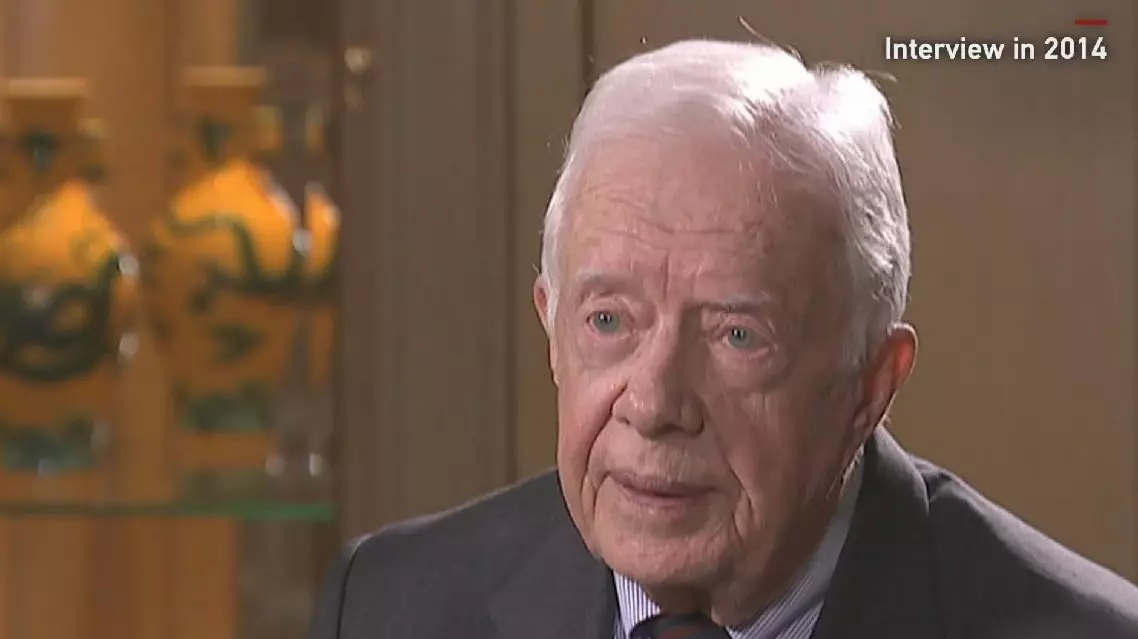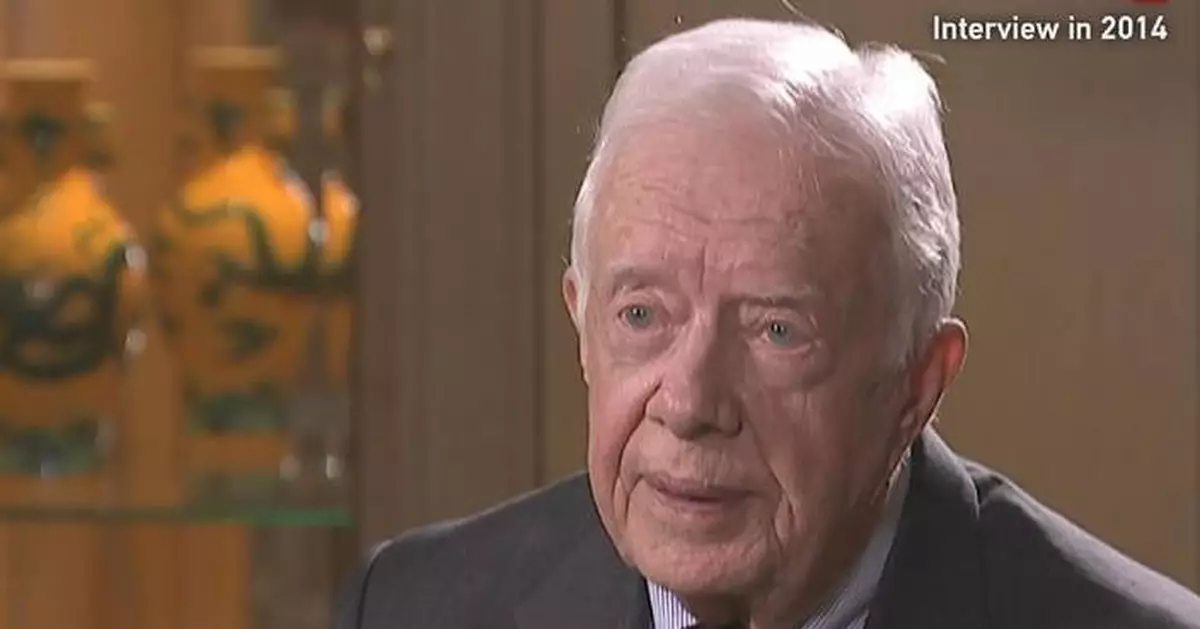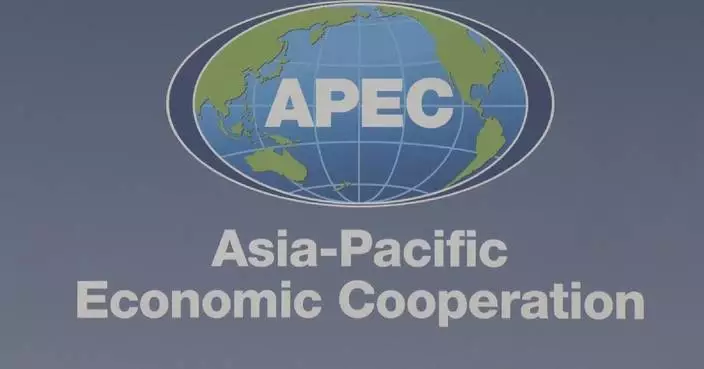Former U.S. President Jimmy Carter, who passed away at the age of 100 on Sunday, left abundant legacies of promoting positive relations between China and the United States, including advocating that uniting the two countries for peace and progress is far more important than their differences.
Jimmy Carter, who served as the 39th president of the U.S. from 1977 to 1981, died at his home in Plains in the southern U.S. state of Georgia. according to a statement issued by the Carter Center.
Carter was born on Oct 1, 1924, in the southeastern U.S. state of Georgia. He held the record as the longest-lived former U.S. president, outliving his two successors, Ronald Reagan and George H.W. Bush.
Following his term in office in 1981, Carter embarked on several visits to China, showcasing his enduring dedication to fostering positive relations that extended well beyond his presidency.
During his visit to China in 2014, Carter stated in an interview with the China Central Television (CCTV) that while many differences may arise between the United States and China in the future, what unites them for peace and progress outweighs what sets them apart.
"We knew that China and the United States had different culture, different ancient history, different form of government, different interest. We solved the differences. So, we anticipated that in the future, there would be many differences between our two countries. But we also realized, I think accurately, that the things that bind us together for peace and progress are much more important than the things that divide us one from another. And of course, the United States has always been very deeply involved in Asia and in the Western Pacific. It's not a new thing," Carter said.
Moreover, the former U.S. president highlighted that currently, the combined influence of countries including Brazil, Russia, India, China, and South Africa far exceeds that of the United States.
"We understand that in the past, after the World War II was over and particularly after the Soviet Union dissipated into Russian and 12 or so other countries, that the United States became the only world power that could be called a superpower. But now we see that the combined effect for Brazil and Russia and India and China and South Africa and other countries of much more important collectively than the United States," Carter said.

Former U.S. President Jimmy Carter leaves lasting legacy in fostering China-U.S. relations
A Chinese envoy on Thursday called on all peace-loving countries to promote the implementation of the two-state solution as it is the sole viable solution to the Middle East issue.
The call was made by China's deputy permanent representative to the United Nations Geng Shuang at a commemoration marking the 77th anniversary of the Nakba ("catastrophe" in Arabic) which was held by the Committee on the Exercise of the Inalienable Rights of the Palestinian People at the United Nations headquarters in New York.
The Nakaba refers to the mass displacement and dispossession of Palestinians during the 1948 Arab-Israeli war. It remains a deeply traumatic event in the Palestinian collective memory and continues to shape their struggle for justice and for their right to return to their homes.
Urging steps to realize a comprehensive and lasting solution to the Palestinian question, Geng stressed that only through the implementation of the two-state solution can the Nakba be consigned to history.
Seventy-seven years ago, more than half of the Palestinian people were expelled or fled from their homes during the Arab-Israeli war, and they have since embarked on the arduous journey of striving for their legitimate rights and interests, Geng said.
"Today, 77 years later, the historical injustice suffered by the Palestinian people has not only remained unaddressed, but has even worsened," he pointed out.
Noting the question of Palestine, at the core of the Middle East issue, bears on peace, stability, and long-term security of the region, Geng said the implementation of the two-State solution is the only viable way to resolve the question.
The imperative now is to immediately realize a lasting ceasefire in Gaza and alleviate the humanitarian disaster, Geng said, urging Israel to implement the United Nations Security Council and General Assembly resolutions, comply with the International Court of Justice provisional measures and advisory opinion, and immediately cease all military attacks and violations of international law, especially the International Humanitarian Law.
"On the question of Palestine, China, upholding fairness and justice, remains steadfast in its support for the justice cause of the Palestinian people to restore their legitimate national rights for the early establishment of the fully sovereign and independent State of Palestine based on the 1967 borders with East Jerusalem as its capital, and for the early admission of the State of Palestine as a full member of the United Nations," Geng added.

Chinese envoy stresses two-state solution as sole viable solution to Middle East issue





















































